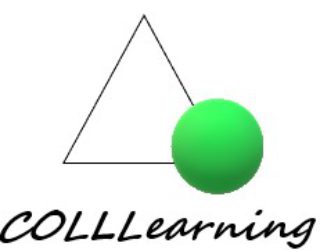BUNGE, Mario Augusto, Philosophical Dictionary, 2nd Enlarged Edition, Amherst (New York): Prometheus Books, 2003
2nd Enlarged Edition, Amherst (New York): Prometheus Books, 2003, pp. 330. ISBN 13: 978-1591020370 (paperback).
This lexicon of modern Western philosophical concepts, problems, principles, and theories may well be the shortest dictionary of philosophy in the English language, but one of the most useful. Organized by internationally recognized philosopher Mario Bunge, this indispensable volume, directed to general and university audiences, elucidates and evaluates many contemporary philosophical ideas from a humanist and scientifically oriented perspective.
From A to Z, most entries are brief and nontechnical in nature, highlighting useful philosophical terms rather than trendy ones. Placing emphasis on “living” philosophy, Bunge has deliberately excluded many of the archaic terms and philosophical curious of other dictionaries. He has incorporated a number of “minipapers” or longer definitions of some terms, and he critically analyzes such influential doctrines as existentialism, phenomenology, idealism, materialism, pragmatism, deontological ethics, utilitarianism, and many others. Constructive alternatives are offered to all philosophical approaches he criticizes.
This enlarged edition of Mario Bunge’s book is a superb reference work for both students and professional philosophers. In one volume Bunge covers all the major branches of contemporary philosophy, logic, semantics, metaphysics, and epistemology, as well as practical and applied philosophies.
Author biography
Mario Bunge was born in Buenos Aires (Argentina) in 1919. After training as a physicist –doctorate in mathematical physics, Universidad Nacional de La Plata (1952), where he learnt atomic physics and quantum mechanics from Guido Beck, an Austrian expatriate who had been an assistant of Heisenberg–, he was professor of theoretical physics (1956-1966) and philosophy, which he taught at the University of Buenos Aires from 1957 to 1963. He was the first South American philosopher of science to be trained in science.
Driven to emigrate by the political situation of his native country, particularly due to his socialist leanings, Mario Bunge initially settled in Europe, then in Montréal, where in 1966 he joined the philosophy department at McGill University, and never looked back. His career as a researcher rapidly assumed international scope and led him on to countless activities as an editor, speaker, guest professor, learned society member, and recipient of honorary distinctions, etc.
As Michael R. Matthews –University of New South Wales, Sydney, Australia– underline, the unifying thread of Mario Bunge’s scholarship is the constant and vigorous advancement of the Enlightenment Project, and criticism of cultural and academic movements that deny or devalue the core planks of the project: namely its naturalism, the search for truth, the universality of science, rationality, and respect for individuals. At a time when specialization is widely decried, and its deleterious effects on science, philosophy of science, educational research and science teaching are recognized – it is salutary to see the fruits of one person’s pursuit of the ‘Big’ scientific and philosophical picture.
Mario Bunge was the Frothingham Professor of Logic and Metaphysics at McGill University until his retirement in 2011 and is now Professor Emeritus in Philosophy.
He is author of over 80 books (including many translations into several languages) and some 500 articles mainly in English and Spanish, cofounder with logician Hugues Leblanc of the Society for Exact Philosophy, Mario Bunge set himself a task as an epistemologist, achieving a synthesis of rationalism and empiricism (Scientific Research, 1967, new version: Philosophy of Science, 1999), and also as a generalist philosopher and creator of a complete system, thanks to his monumental 8 volume Treatise on Basic Philosophy (1974-89), in which he defended conceptions on materialism and humanism. In his own cutting style, his Dictionary of Philosophy (1999) –the first edition of the Philosophical Dictionary–, accurately conveys this thought. Advocate of a precise philosophy “offering axiomatic and formalized expression of concepts and theories” he no less supported original positions on moral thought and politics. He is also the author of The Sociology-Philosophy Connection (1991), Finding Philosophy in Social Science (1996), Social Science under Debate. A Philosophical Perspective (1998), Philosophy in Crisis: The Need for Reconstruction (2001), Scientific Realism: Selected Essays of Mario Bunge (edited by Martin Mahner (2001), Matter and Mind. A Philosophical Inquiry (2010), Evaluating Philosophies (2012), and Medical Philosophy (2013).
He is a member of the American Association for the Advancement of Science (from 1984) and the Royal Society of Canada (from 1992). He was awarded the Premio Príncipe de Asturias of Spain in 1982 and the John Simon Guggenheim Fellowship in 2009.
Degrees
PhD in physico-mathematical sciences, Universidad Nacional de La Plata (1952)
Twenty honorary doctorates
Five honorary professorships
Teaching and research areas
Theoretical physics
Ontology
Epistemology
Philosophy of science
Philosophy of technology
Philosophy of mind
Value theory and ethics
Current research
Philosophy of the social sciences, philosophy of mind, and metaphysics

